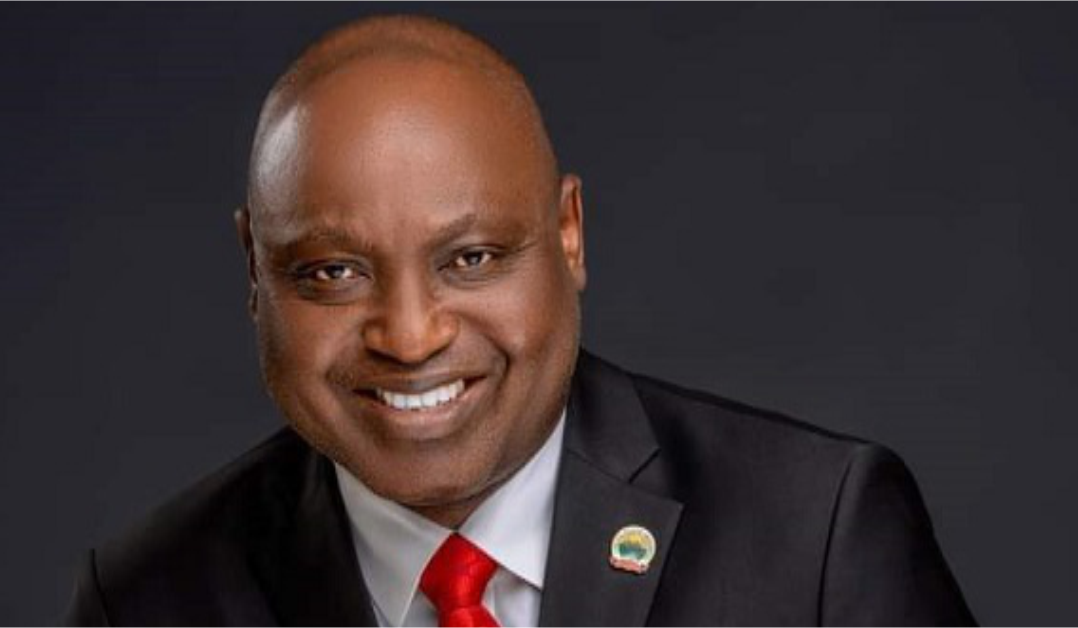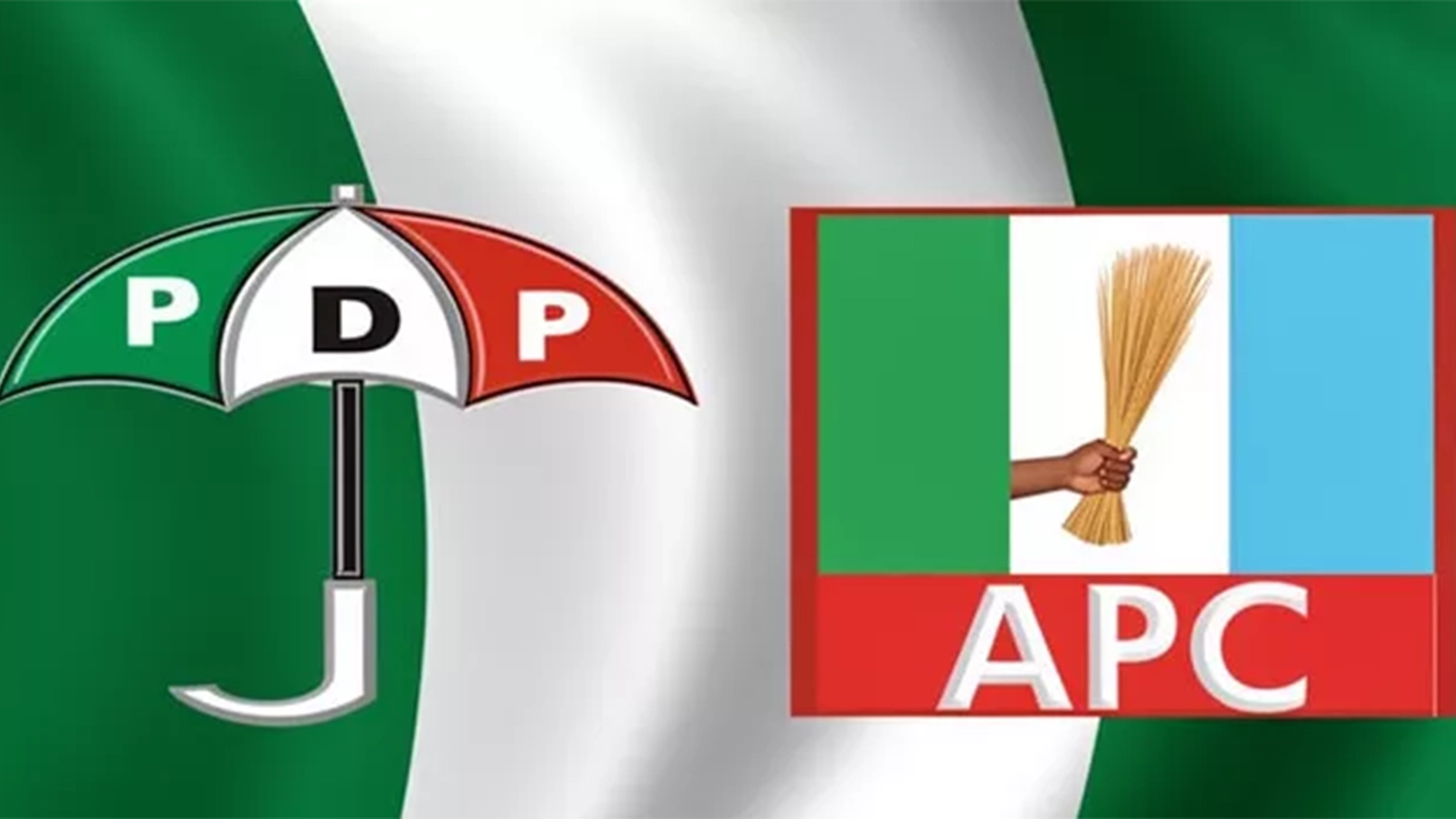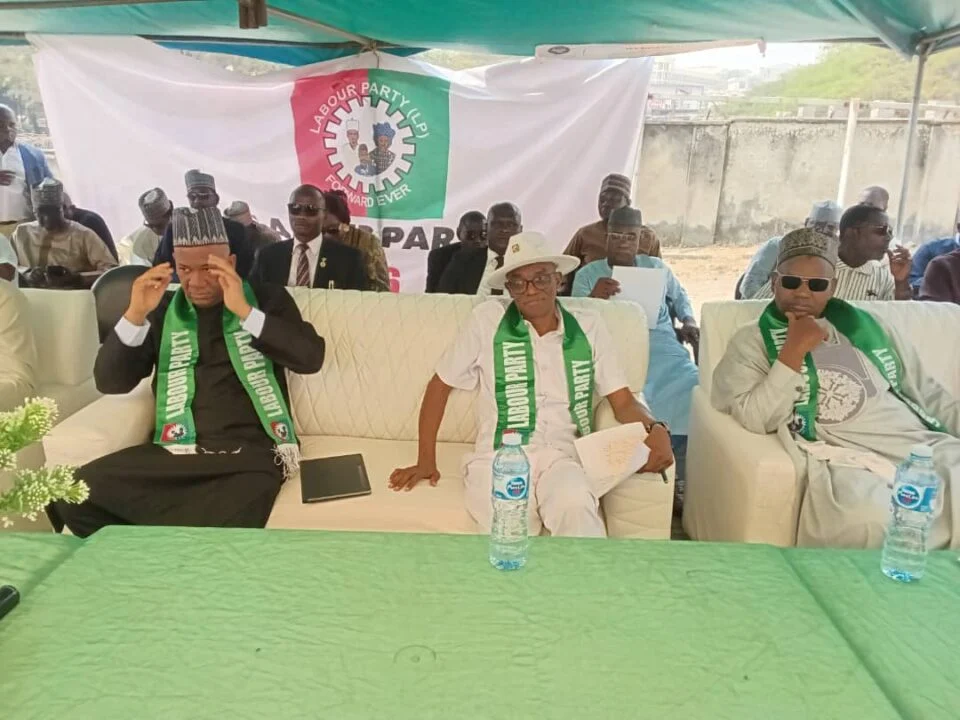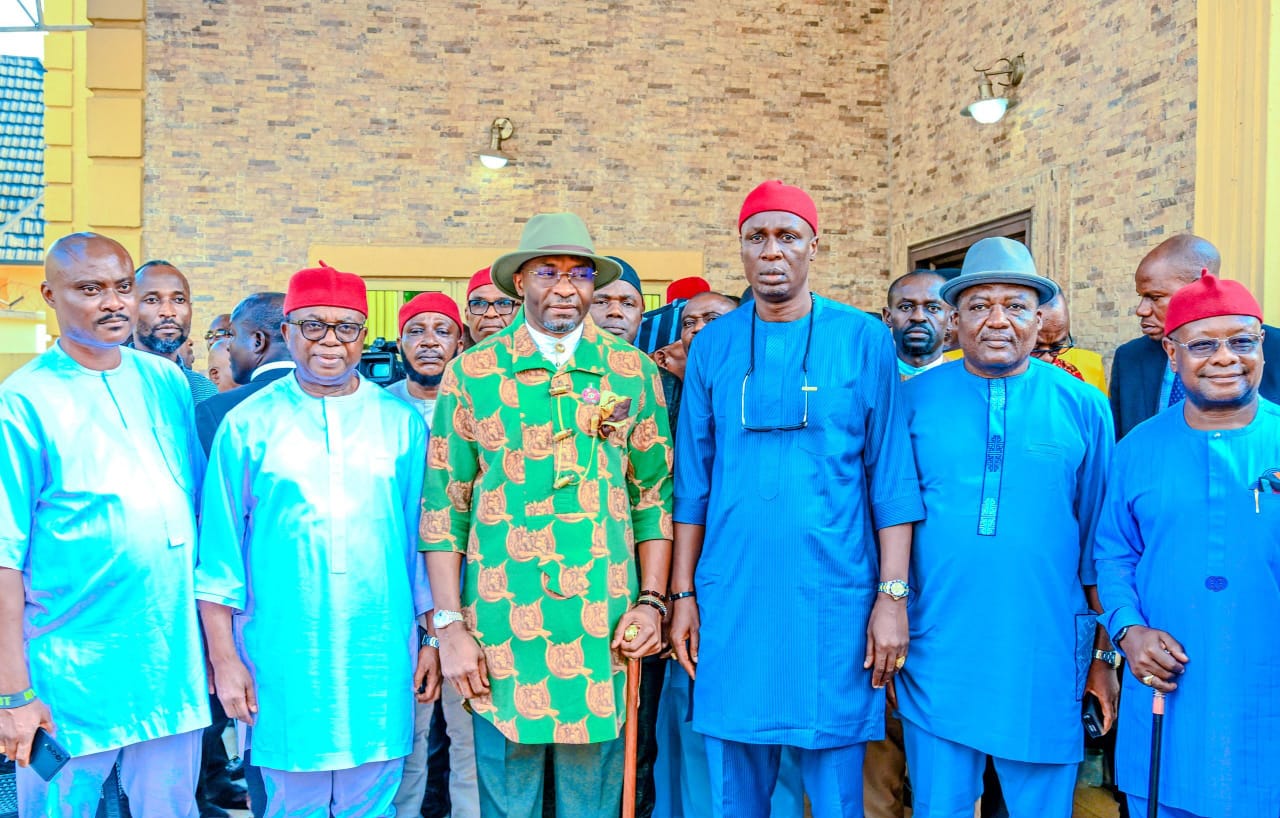
In the final results announced by the Chief Returning Officer and Vice-Chancellor of the University of Ibadan, Professor Kayode Adebowale, the candidate of the All Progressives Congress (APC), Biodun Oyebanji polled 187,057 votes to defeat his two closest rivals, the Social Democratic Party candidate, Chief Segun Oni who scored 82,211 votes and the candidate of the People’s Democratic Party (PDP), Bisi Kolawole who polled 67, 457 votes. The APC candidate also won in 15 local councils, as against the PDP candidate who won in the remaining one council of the state.
With the results of the poll, the APC broke the succession jinx by winning the governorship back-to-back, a feat that no other party has been able to achieve since the return of democracy in 1999. The party also recorded an outstanding victory seen by many as unprecedented by scoring 57 per cent of the total votes cast, in an election that was earlier predicted to be not only a three-horse race but close to call.
In the aftermath of the elections, there have been questions about the dramatic change or twist of events that gave the ruling party, which was struggling to convince people to vote for them, such an outstanding victory? To many political watchers, the answer may not be far-fetched. To them, 24 hours was a long time in politics to change the tide.
There is no doubt that the APC made judicious use of its visible structures across the 177 wards, 16 local councils and the incumbency factor. The party has elected officials as councillors across the state, 26 House of Assembly members, commissioners, two senators and six House of Representatives members. All these were deployed to its advantage.
As the ruling party, the APC’s campaign underscored the need for continuity especially the sustenance of the legacies of the outgoing administration of Dr Kayode Fayemi. Many residents are of the view that lack of continuity has led to many truncated development and abandoned projects that are left uncompleted by successive administrations.
The APC candidate, who is seen by many, especially the elites, as a home-grown politician, who apart from being one of those instrumental to the creation of Ekiti State, lives and works in the state, aside from having served the state in various capabilities, really added some impetus to his campaign.
The way the APC was able to resolve its seemingly intractable crises and brought the aggrieved, the disgruntled and those who had become politically ambivalent on board up some 48 hours to the crucial election, contributed in no small measure to the resounding victory at the poll.
For instance, the party was able to pacify some of the governorship aspirants and political heavyweights who lost out in the January APC primaries by allowing them to retain their positions at the National Assembly. Senator Opeyemi Bamidele who is chairman of, Southern Senators Forum was given the return ticket of the party unopposed. Also, the chairman of the House Committee on FERMA, Femi Bamisile was made to win his return ticket to the House of Representatives. Recall that some of these aggrieved party leaders had openly identified with Oni before the party was able to broker peace.
Oni defected to the SDP in February this year after his loss at the PDP primary held in January. He used his network and limited resources to galvanise support and poached into the troubled PDP as well as the APC to swell his membership.
In what appeared to be the masterstroke that worked in favour of the APC and to the disadvantage of the SDP candidate, was the emergence of the former Lagos State Governor and National Leader of the APC, Bola Ahmed Tinubu as Presidential candidate for the 2023 General Elections. The SDP was the favoured underdog to spring unexpected surprise at the poll following some political undercurrent and permutations that Tinubu might support Oni once he failed to pick the ticket of APC. Not only did the permutations fail to materialise, but the decision of Governor Fayemi to drop his ambition at the APC convention for Tinubu also changed the dynamics of the governorship election as the presidential candidate mobilised both human and financial resources towards the success of the APC candidate in Ekiti.
Tinubu was said to have had a last-minute fence-mending meeting with aggrieved APC leaders in the state including the leadership of the South West Agenda for Asiwaju (SWAGA 2023) who had dissociated themselves from the ruling party’s campaigns and activities leading to the poll. The Senator Adeyeye-led SWAGA group was a major plank of Oni’s structures. In fact, the group was said to have suggested the SDP platform for Oni, with the hope that it would serve as plan B for Tinubu to realise his presidential ambition. So, to many, these last-minute efforts of Tinubu robbed the electoral chances of the SDP candidate.
Above all, the role of monetary inducement, code-named “see and buy” also played a major role in the final results. All the major political parties were said to have spent various sums of money to buy votes. The anti-graft agency, the Economic and Financial Crimes Commission (EFCC) was said to have made undisclosed numbers of arrests of some agents of parties buying votes.
The failure of the Peoples Democratic Party (PDP) in Ekiti State in the election was not surprising to many political watchers in and outside the state. Arguably, the party started the downward journey to the abyss when it could not manage its successes and ascendency to power in 2018.
The crises that hit the party like thunderbolt then resulted in its lacklustre performance, which made the then opposition All Progressives Congress (APC) win all elective positions from local government to State Assembly, National Assembly and the governorship elections. The exception was the one retrieved through the court by the Senator representing Ekiti South Senatorial district, Biodun Olujimi.
The intractable crises seed was sown as a result of the alleged imposition of the governorship candidate in 2018 by the former governor, Ayodele Fayose, who anointed his deputy, Professor Kolapo Olusola as the preferred candidate.
The action led to the mass exodus of party wigs as well as other aggrieved leaders from the party. The actions and inactions of the then leadership of the PDP at the centre, led by Uche Secondus further did more damage to the health of the already sick party. Rather than remain an unbiased arbiter, and broker the needed truce, the leadership was taking sides with a faction of the party.
The national leadership handed the structure of the party to the faction led by Fayose by recognising the congresses conducted and the state executive produced by him. This made the ex-governor the sole administrator who ditched out orders that must be obeyed.
This was the state of affairs when the Senator Iyorcha Ayu-led National Working Committee assumed office. Many political watchers had thought that they would do something different by bringing all the aggrieved members on board through genuine reconciliation.
Unfortunately, all actions taken suggested that no lesson had been learnt. Apart from toeing the line of the previous National Working Committee, the Ayu leadership endorsed the election of ad-hoc delegates and governorship primary, which was adjudged by many as lacking transparency.
Rather than the leadership taking a second look at the outcome of the primary and the avalanche of complaints trailing the delegate’s elections through its appropriate organs and taking necessary remedy on merit, the PDP simply endorsed the outcome and further strengthened Fayose’s hold on the party.
Former governor, Chief Segun Oni who returned to the party in the year 2020 to realise his governorship election, did not join any of the factions, preferring to remain on the fence. He had thought that by doing so, he would be given the ticket to the party.
Belatedly, the Ayu-led executive waded in and brought both the Osoko Political Assembly, which is the faction led by Fayose and the repositioning group led by Olujimi. Several meetings were held in Lagos and Abuja to calm frayed nerves.
The final resolution was that the two factions resolved to work together after they agreed to share positions, especially that any group that produce the governorship candidate would yield the deputy slot to the other faction. But the resolution did not take care of Oni’s interest and he was left floating.
However, these terms of the settlement were observed in breach because the two factions immediately returned to the trenches. Fayose not only produced Bisi Kolawole, his former Commissioner for Environment as the governorship candidate, he also anointed the deputy, Funmi Ogu whose nomination was rejected by the national leadership. He thereafter nominated Kolapo Kolade, his former Attorney General from the South Senatorial district to replace Ogu.
During the recently concluded national and state assembly primaries, Fayose singlehandedly picked all of the candidates for the various positions including his second son as a candidate for the House of Representatives. This action further alienated the party from its teeming supporters.
The second factor that led to the final fall was the defection of Oni from PDP. Against what political analysts see as political miscalculations by the party, Oni who is popular and sellable was denied the ticket of the party. Apart from decamping with his supporters, he also left with the aggrieved and disgruntled members. What was more, he inherited the structure of the repositioning group and poached into the Fayose political family.
The Social Democratic party floated by Oni became a force to be reckoned with in the state after inheriting members from both the APC and the PDP.
Fayose became the sole financier and campaigner for Kolawole who appeared not to have received assistance from the governors and the presidential candidate of the party, Alhaji Atiku Abubakar, as was the tradition of PDP.
The party was unable to muster enough resources to undertake a decent campaign for its candidate. It claimed that it adopted the house-to-house model of the campaign.
Besides, the outcome of the PDP convention that produced Abubakar, impacted negatively the chance of the party in the poll. Since the election took place less than two weeks after a highly controversial and intriguing exercise.
Some of the governors, especially Fayose’s ally, Governor Nyelsom Wike were yet to recover from the defeat. The Presidential candidate was not supported during the national convention by Ekiti delegates. And some analysts posited that this could explain why Atiku was aloof and indifferent to the success of the party’s candidate.
This perhaps also explains why, unlike some parties participating in the election, which held mega rallies to drum support for their candidates, PDP was unable to organise a mega rally. In fact the Oyo State Governor, Seyi Makinde, who was made the head of the campaign, was said to be a way to London, when he was supposed to be organising a rally to drum support for the party candidate.
Reacting to the fate that befell the party in Ekiti, a chieftain of the party who does not want to be mentioned, said that many members of the party were not surprised at all by the outcome of the election.
He blamed the national leadership of PDP as having been responsible for what happened to the party. He also blamed Fayose for his alleged imposition and impunity for the great defeat. He urged the party leadership to start rebuilding the party and reconcile those who are aggrieved over one thing or the other and woo them back ahead of 2023 general elections.






